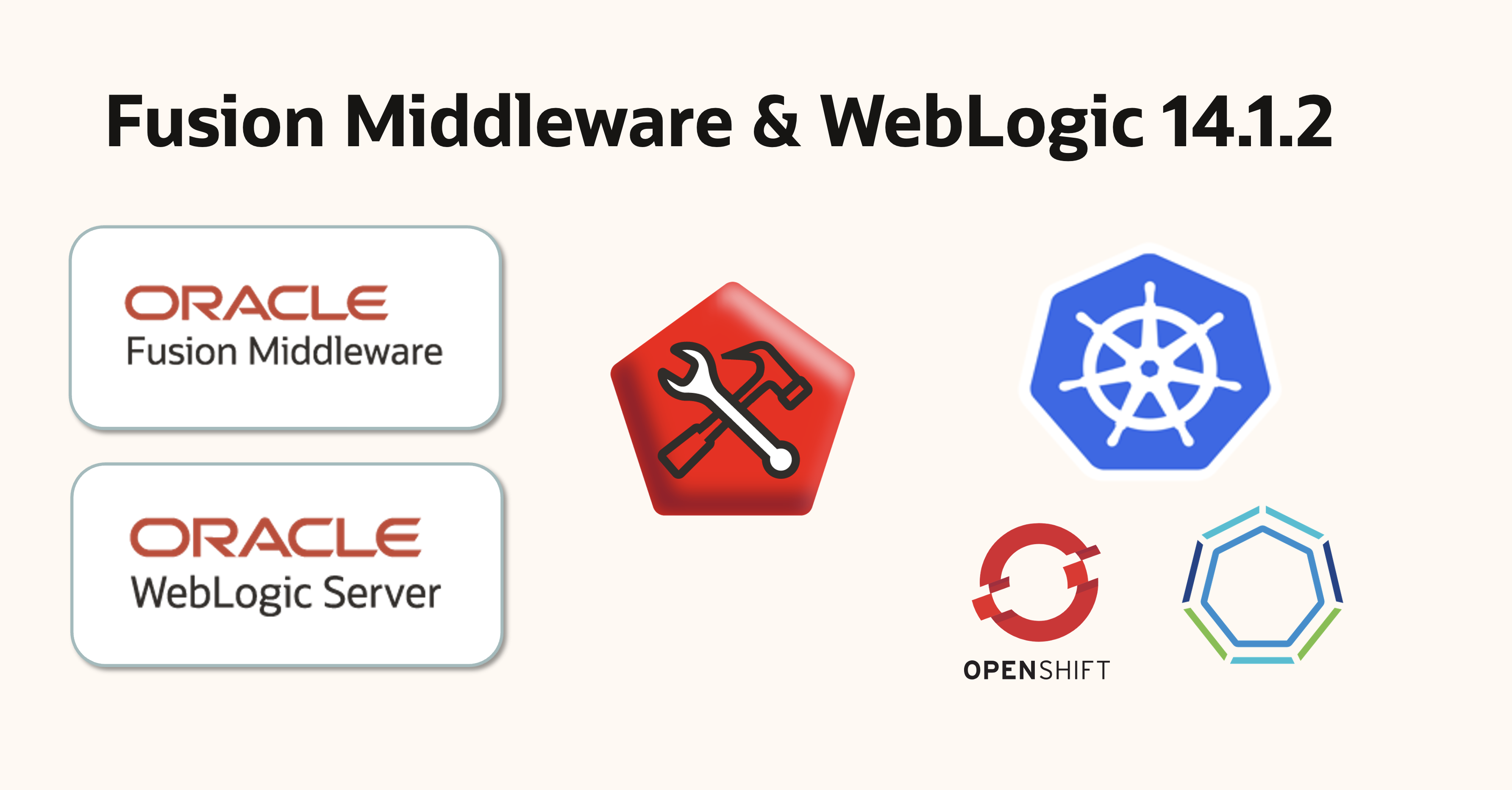
On December 20, 2024, Oracle announced the general availability of Fusion Middleware 14.1.2, a major release that introduces several highly anticipated enhancements and capabilities. One of the key themes of this version is the support for deploying Fusion Middleware domains in Kubernetes and supporting containerized environments for several core components of the platform, including WebLogic Server, Coherence, SOA Suite, Oracle Service Bus and WebCenter. With the 14.1.2 release, Oracle began shipping Fusion Middleware images through the Oracle Container Registry, simplifying both the installation and provisioning process, as well as the quarterly patching process.
Oracle WebLogic Server, as the foundation of the entire Fusion Middleware platform, plays a critical role in running these components within Kubernetes clusters. To simplify the lifecycle management of WebLogic Server in Kubernetes, Oracle delivers a set of open-source tools known as the WebLogic Kubernetes Toolkit. This toolkit streamlines the process of managing runtime environments in Kubernetes.
The centerpiece of the WebLogic Kubernetes Toolkit is the Oracle WebLogic Operator (WKO), which is responsible for managing all lifecycle operations within Kubernetes for containers representing WebLogic Server domains. These lifecycle operations include provisioning, starting, stopping, restarting, and scaling WebLogic domains. WKO is essential for running WebLogic Server containers in the Kubernetes platform.
Another important component of the toolkit is the WebLogic Deployment Tool (WDT), which aids in introspecting existing domains and extracting metadata related to domain configurations. Along with the WebLogic Image Tool (WIT), WDT simplifies the process of creating the necessary images for WKO to deploy and manage WebLogic Server domains.
With the 14.1.2 release, Oracle also introduces several enhancements to the WebLogic Kubernetes Toolkit to support the deployment of Fusion Middleware 14.1.2 domains in Kubernetes. One of the most important improvements to WKO and WDT is the ability to provision domains that include components beyond the basic WebLogic Server installation—components that provide essential functionality for Oracle Fusion Middleware and Oracle business applications, collectively known as Oracle JRF (Java Required Files). Thanks to this enhancement, WKO can now automatically create all the required Oracle Fusion Middleware database schemas (called RCU schemas), Persistent Volumes (PVs), Persistent Volume Claims (PVCs), base domains within Persistent Volumes, and OPSS wallets. This automation simplifies the process significantly, making it easier for customers to adopt Kubernetes for their Fusion Middleware deployments.
Additionally, WKO and WDT now support upgrading domain configurations to WebLogic 14.1.2, particularly when customers use the Model-in-Image deployment pattern. WDT also includes enhancements to manage WebLogic Security Providers within WebLogic domains, enabling the migration of these configurations along with the domain model.
Furthermore, the WebLogic Kubernetes Toolkit now offers an improved method for representing WebLogic Clusters in Kubernetes through a new Cluster Custom Resource. This resource can be used in conjunction with Kubernetes Horizontal Pod Autoscaling (HPA) to scale WebLogic Server clusters dynamically within a WebLogic Server domain.
These are just a few of the many enhancements in this release. For a detailed list of new capabilities in WDT and WKO, please refer to the official documentation.
The release of Oracle Fusion Middleware 14.1.2 brings significant improvements for organizations looking to deploy their Fusion Middleware applications in Kubernetes environments. With enhanced support for WebLogic Server, Coherence, this release simplifies the management and scaling of containerized workloads through the WebLogic Kubernetes Toolkit. Key enhancements, such as the ability to automate the creation of essential Oracle Fusion Middleware components, seamless domain provisioning, and improved support for WebLogic security configurations, make it easier than ever for customers to adopt Kubernetes for their critical business applications. With a focus on automation, ease of use, and scalability, Fusion Middleware 14.1.2 ensures that organizations can fully leverage the benefits of Kubernetes while maintaining a high level of control over their WebLogic Server domains and applications.
Useful Links:
